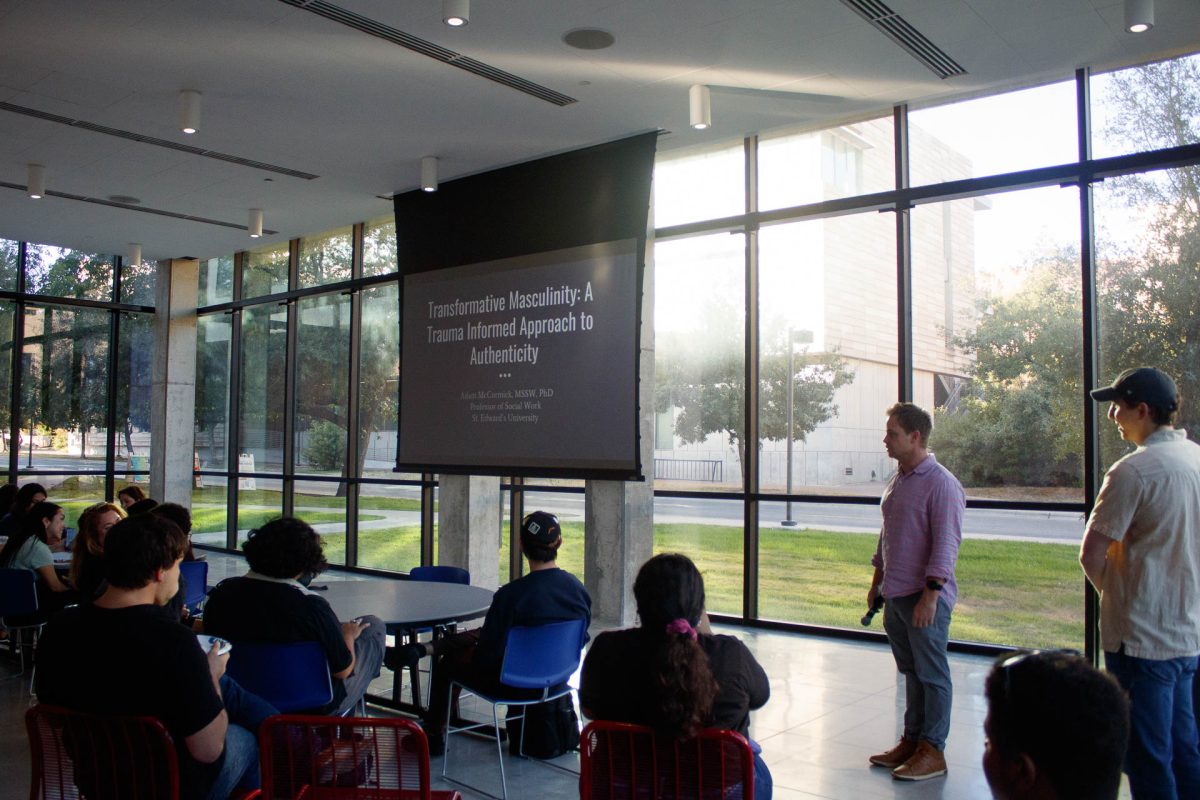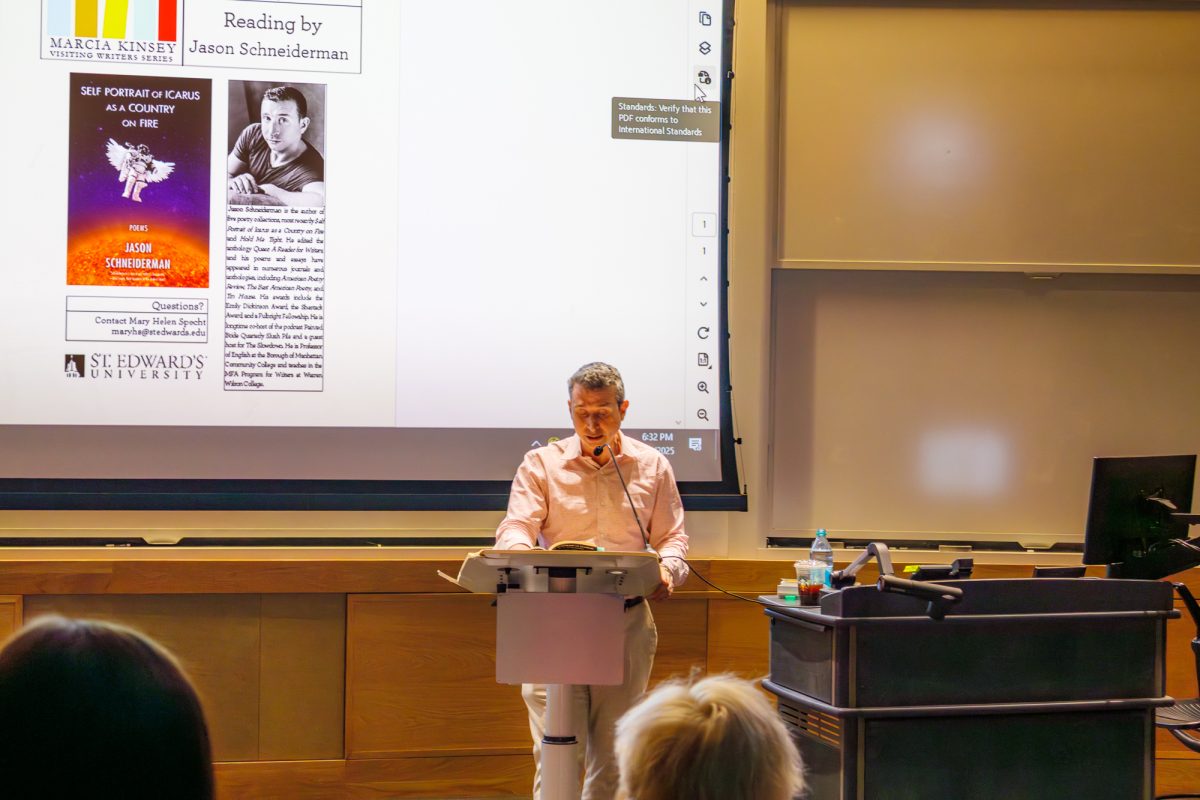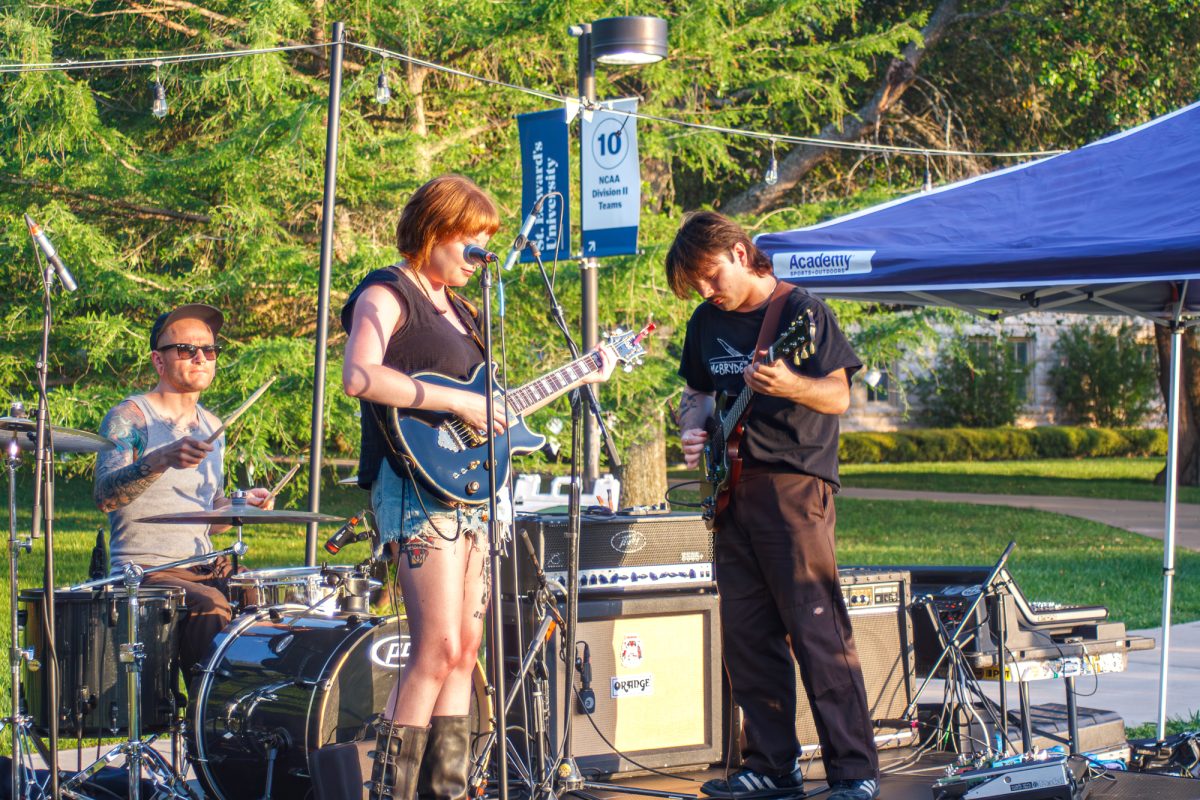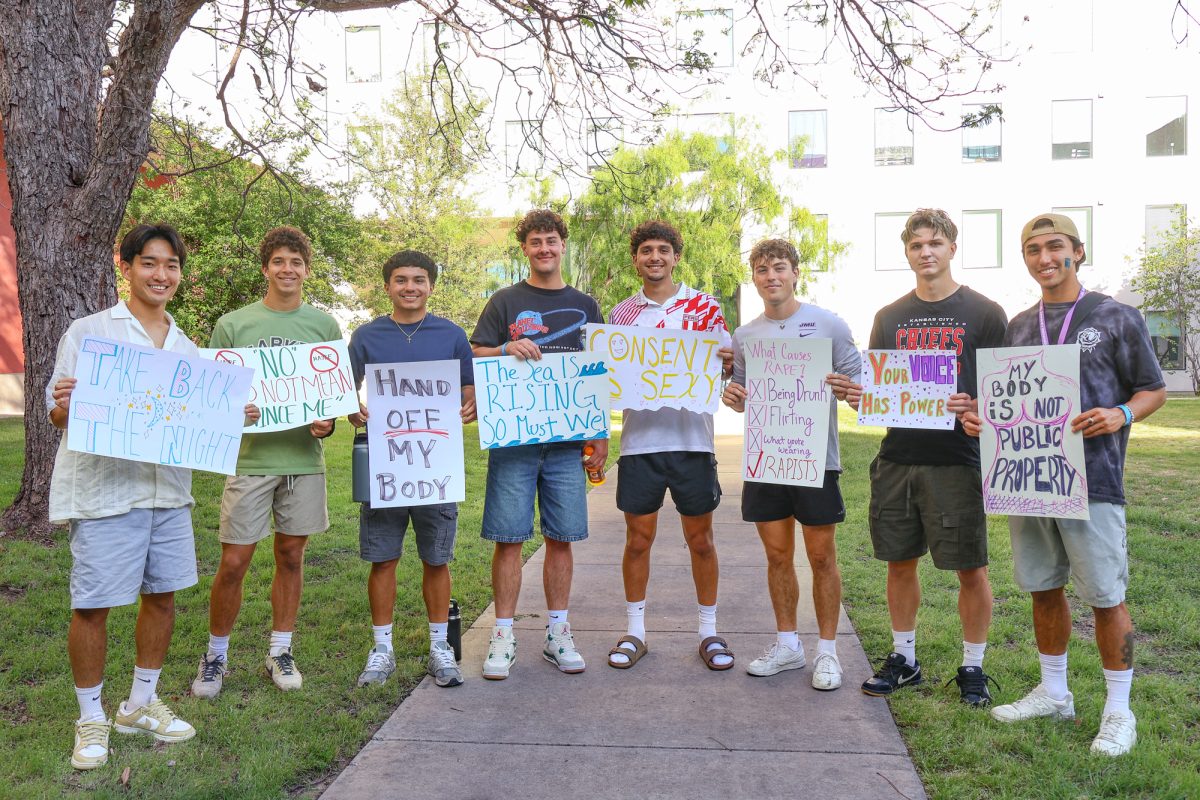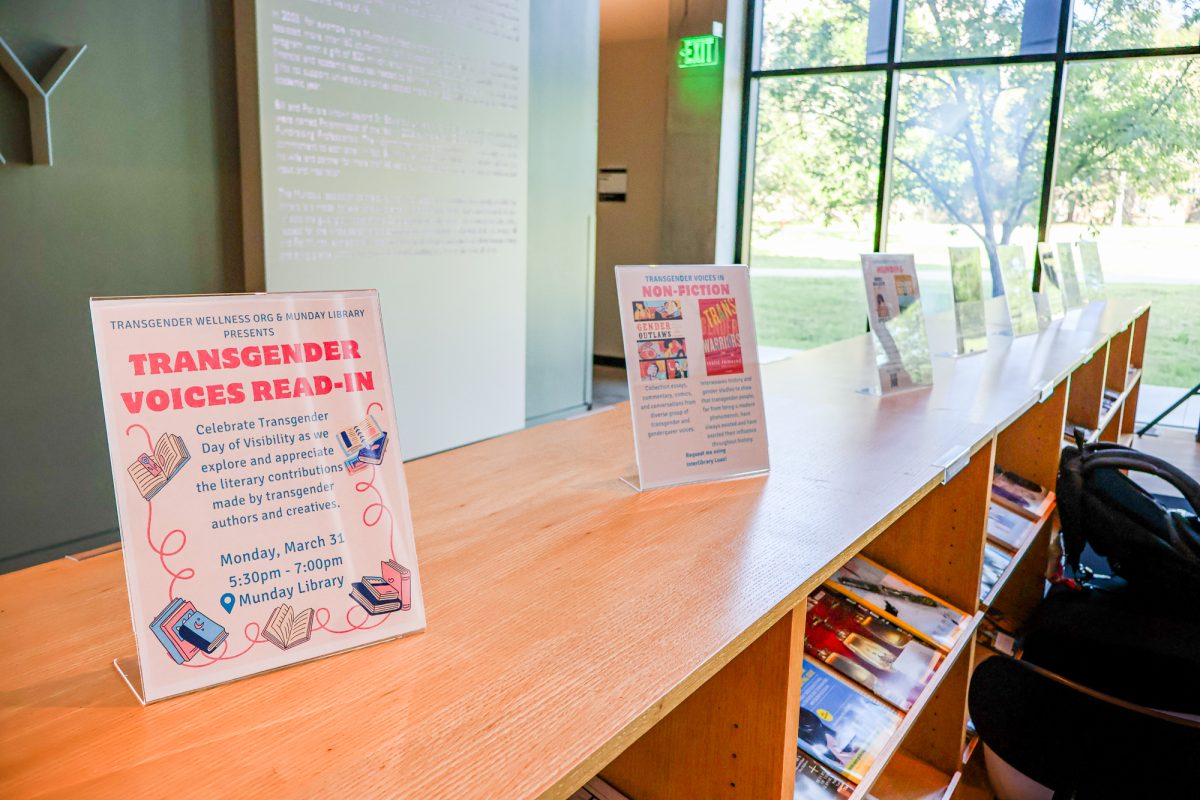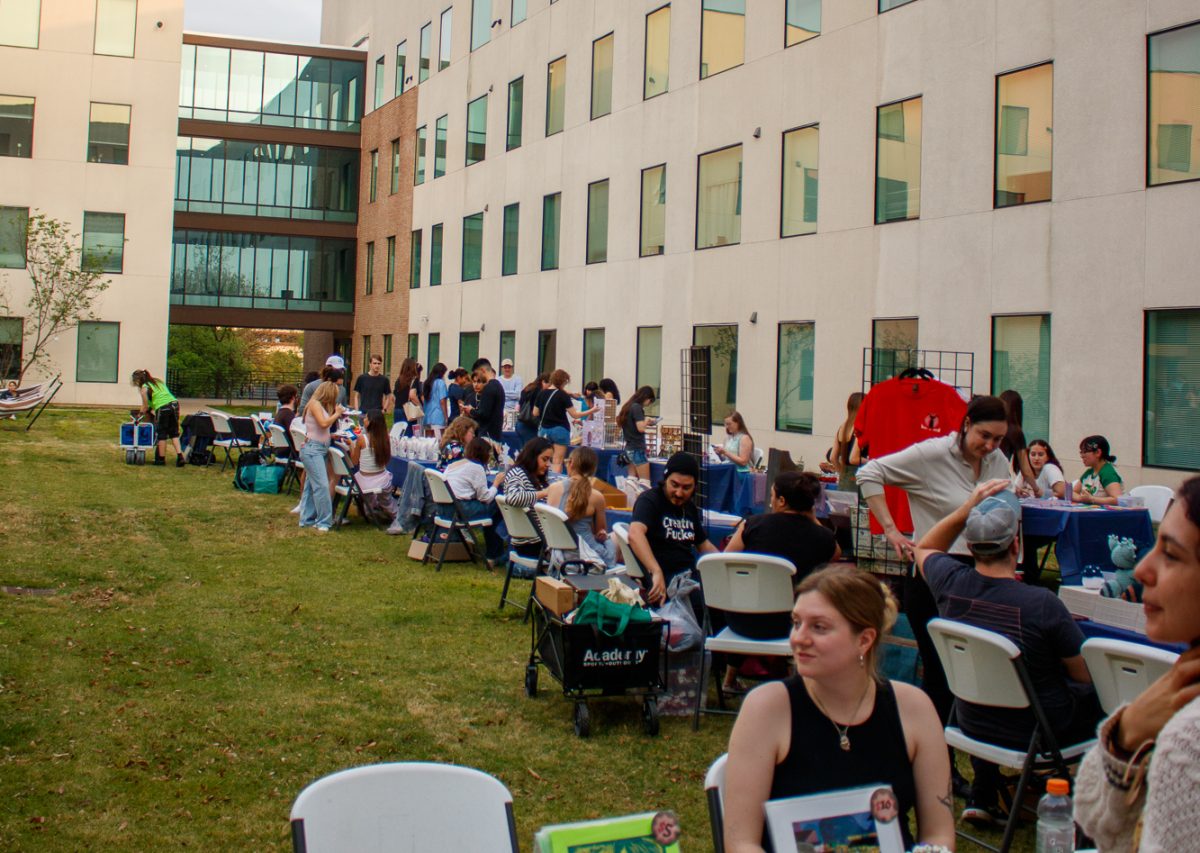Toxic masculinity has been a hot topic in recent years. Nowadays, machismo culture and the “toxic” elements of masculinity are widely acknowledged by the community. Last Thursday, students jumped at the opportunity to attend SEU Social Work Professor Adam McCormick’s, Ph.D., lecture on “Transformative Masculinity: a Trauma Informed Approach to Authenticity,” hosted by Redefining Me(n) and Pride.
The lecture provided students the opportunity to learn about, identify and overcome the harms and trauma that men face due to the negative connotations of societal norms around masculinity. McCormick included academic research, statistics and personal experiences from his childhood as strong evidence to tie into his point to the attendees.
McCormick began to delve into difficult aspects of the conversation, explaining how masculinity starts to become unhealthy or harmful through concepts such as hypermasculinity. Passed down from generations, or family members who conceal healthy vulnerability and emotion, it can be the leading cause of issues like domestic violence, anti-LGBTQ rhetoric and even increasing suicide rates amongst men. He reiterates his statement that this problem not only harms men, but others as well.
“This touches everyone, because the origins of domestic violence, intimate partner violence, homophobia, transphobia, racism — it is shown so deeply and the intersections are so profound and so strong there,” McCormick said. “So I think people want to understand this better, whether it’s to understand themselves better, or to understand their loved ones better, their partners better, and I think that’s the best approach.”
McCormick related these harms to the causes of trauma. He described trauma in a captivating way, explaining through his own experience, that he understands how trauma can have many different definitions but the same harmful outcome. He also explained that trauma surrounding masculinity within men isn’t just an experience, but also a lack of positive self-image or influence.
“Trauma is not what happens to us, trauma is what happens inside of us,” McCormick said. “But trauma is also the lack of good things that don’t happen to us, nurture that you don’t get”
Transformative masculinity aims to heal the trauma and change the harmful norms and rhetoric of masculinity. During the lecture, McCormick made a language change by using this term instead of “toxic masculinity.” He explained that the reasoning behind his word change was that language can often serve as a large barrier when having such conversations, and that it plays a big part in generating interest.
“I think we make a big mistake using the word toxic; it is toxic, it shuts folks down, it shuts conversations down,” McCormick said. “What if we shift towards not just ‘what is toxic masculinity’, but ‘what is authentic masculinity? What is transformative masculinity? What is healthy masculinity?’”
The concepts of transformative masculinity have started to reach our campus through the help of Redefining Me(n) and Pride. Redefining Me(n) director Dawson Kinnamon explained that he and Pride President Kam Fletcher collaborated for the event so that any and all students were welcome to engage in conversations about healthy, transformative masculinity with professors like McCormick, who are meant to reaffirm the positive conversations about authentic and healthy masculinity.
“The overall mission is combating outdated gender norms, gender expectations and toxic messages, and we do so through holding conversation,” Kinnamon said. “We want to emphasize that this is an initiative for everyone. Everyone’s voice is welcome and we really, really appreciate everyone’s perspective.”


